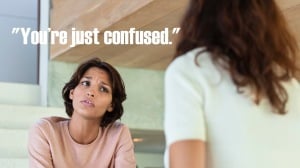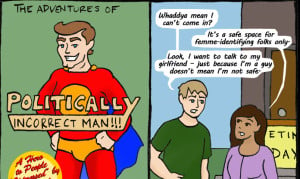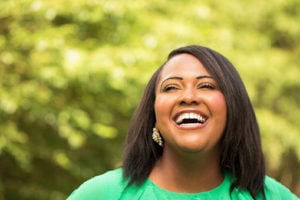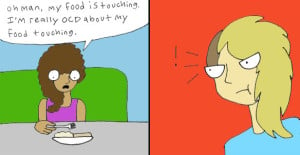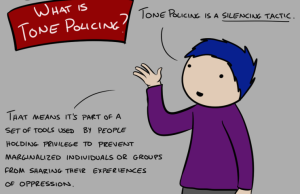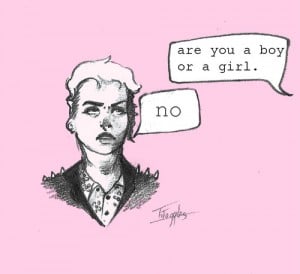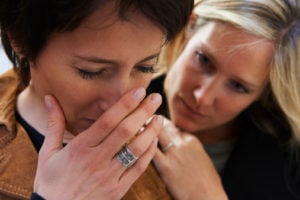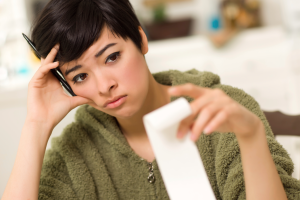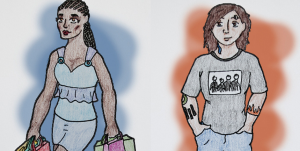Originally published on BodyLoveWellness and cross-posted here with their permission.

Credit: Incipient Ideas
Alternately titled: “Please, Please, Stop Sharing That Video.”
Chances are, someone has sent you this video and told you how inspiring it was.
To be honest, I didn’t find it inspiring at all. Instead, it just made me angry.
Here we go again, with Dove pretending to empower women to love their bodies, with the big honking caveat that you should love your body only when you’re more conventionally attractive than you realize.
In case you haven’t watched the video, the premise is that women are their own worst enemies, who focus on and emphasize their own worst physical qualities.
A sketch artist draws their faces based on their descriptions, and then redraws their face based on the description of someone who just met them. Then the subjects see a side-by-side comparison of the sketch artist’s drawings of them, coming to the shocking realization (!!!) that they are more beautiful than they give themselves credit for.
That may sound inspiring (ish), but it doesn’t work for a number of reasons.
Here are my top five (in no particular order).
Feel free to share it when yet another person tells you how inspiring it is!
1. It Promotes the Idea That Fatness and Bigness Equal Ugliness
A lot of these women’s journeys are about learning that parts of their faces aren’t as big as they thought. From big jaws to big foreheads to fat faces, much of their relief and excitement is centered around finding out that parts of their face aren’t that big.
Because, you know, everything about you should be petite, including your face, because that’s, like, prettier or whatever.
One of the first things we learn about the way another woman saw Florence, the thin, blonde focus of the video, is that “she was thin, so you could see her cheekbones, and she had a nice, thin chin.”
So ladies, if you’re watching this at home, people probably see you as thinner than you think! How great is that?!
Immediately following that storyline, we hear Kela, another blue-eyed blonde who could potentially be as much as a size 10 (!) saying about the image based on her description of herself, “She looks closed off and fatter. Sadder too. The second one [where she looks thinner] looks more open, friendly, and happy.”
So the message is very clear: You’re not as big or as fat as you think. Or, rather, fat and big are still really bad, but you’re not that, so don’t worry.
2. People of Color Appear, But Their Stories Aren’t Told
As one blogger noted (in this great piece), people of color appear for only 10 seconds in footage that totals over 6 minutes.
In the main, 3-minute commercial, we hear one African-American woman note that she has a “fat, rounder face” and we see another African-American woman talk about having freckles.
Then, their stories are just dropped, and we don’t see them have the a-ha! moment of comparing their images to ones based on descriptions by other people. Their stories are basically presented as afterthoughts.
They also just throw in an Asian woman who seems to be happy when looking at the sketches, but there is no information about her at all.
This is yet another way in which this ad reinforces damagingly narrow and exclusionary beauty norms.
3. It Tells Women to Base Their Self Image on How Others See Them
This video puts forth the idea that people around you are probably noticing what they find beautiful about you more than you are. That very well may be true. But, what if it isn’t? And, further more, who cares?
What if people see you as “less beautiful” than you are?
And furthermore, what is beauty and why should you allow others to define it for you? What if most people in your life don’t think you’re beautiful?
If you look to them for approval of how you look, you won’t get it. That approval has to come from within.
4. It Reinforces the Meme That Women Are Their Own Worst Enemies for No Apparent Reason
The beauty and diet industries spend billions of dollars every year to make women feel inadequate so that they’ll buy their products.
And Dove isn’t immune from this: Their parent company, Unilever, owns the company that packages the toxic sludge known as Slimfast.
It’s no wonder that a video about “real beauty” excludes anyone who might be even a little bit fat. Because you wouldn’t want to expand beauty norms to include someone who might buy Slimfast.
So when the participant Melinda says, “We spend a lot of time as women analyzing and trying to fix the things that aren’t quite right, and we should spend more time appreciating the things that we do like,” I think it’s important to acknowledge that companies like Dove are constantly reinforcing the idea that we should fix the things that aren’t quite right.
After all, Dove is the company that brought you the “shamovation” called “Dove Go Sleeveless,” a deodorant designed to make your armpits less ugly.
If you never realized that your armpits were ugly and required a beautifying deodorant, now you do, thanks to the good folks at Dove.
5. Continues to Uphold the Same, Tired Beauty Standards
We’ve touched on this already, but the underlying message of this video is the idea that we are all more beautiful than we think because we’re closer to conventional standards of beauty than we think.
In other words, it just reinforces the same old bullshit beauty standards.
The message is essentially, “You’re not as fat or big or freckly or wrinkly as you think!”
To me, that’s not inspiring or empowering. It’s just more of the same.
Want to discuss this further? Login to our online forum and start a post! If you’re not already registered as a forum user, please register first here.
Golda Poretsky is a Contributing Writer for Everyday Feminism. She’s a certified holistic health counselor and founder of Body Love Wellness, a program designed for plus-sized women who are fed up with dieting and want support to stop obsessing about food and weight. To learn more about Golda and her work, go to www.bodylovewellness.com. Follow her on Twitter at @bodylovewellnes.
Search our 3000+ articles!
Read our articles about:
Our online racial justice training
Used by hundreds of universities, non-profits, and businesses.
Click to learn more





